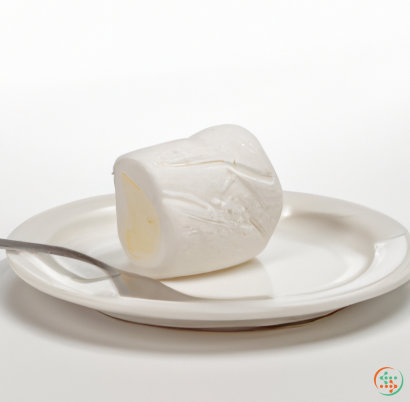Dark Chocolate (45-59% Cacao)
and its health benefits
Dark chocolate is a type of chocolate with cacao content ranging from 45-59%. It has become increasingly popular in recent years, not only for its unique flavor but also for its many health benefits. While it may not offer the same intense sweetness as milk chocolate, dark chocolate is gaining recognition as a super food.
One of the most important components of dark chocolate is its cocoa content. Cocoa, a major component of dark chocolate, is made from the seed of the cacao tree. Just one serving of dark chocolate (1 square of a 100-gram bar) can provide 11-14 grams of cocoa. Cocoa is known for its antioxidant, anti-inflammatory, and anti-venom properties. This means it can protect the body from disease-causing molecules, reduce blood pressure and cholesterol levels, and even promote healthy digestion.
Dark chocolate also contains minerals such as magnesium, zinc, and iron, which are essential for human health. Magnesium helps to relax muscles and nerve cells, while zinc helps regulate hormones, boosts the immune system, and strengthens bones. Iron is essential for healthy red blood cells and healthy cell growth and development. Dark chocolate is also high in fiber, containing 3-10 grams per bar. This can help reduce cholesterol, support healthy digestion, and regulate blood sugar levels.
Dark chocolate also contains flavonoids, which are plant-based antioxidants that scavenge free radicals in the body. These free radicals can cause oxidative stress, which is linked to heart disease, cancer, and other chronic illnesses. By decreasing free radical damage, flavonoids can help reduce the risk of developing these diseases.
In addition to its nutritional and health benefits, dark chocolate also contains compounds such as endorphins, anandamide, serotonin, and phenylethylamine. Endorphins help promote feelings of pleasure and happiness, anandamide is an anti-convulsant, serotonin helps us to stay calm and relaxed, and phenylethylamine is known to improve mood and energy levels. All of these compounds can help boost mood, energy levels, and mental clarity.
Finally, dark chocolate is well known for its antioxidant properties. It contains several antioxidants, including catechins, proanthocyanidins, quercetin, and epicatechin, which can fight free radical damage in the body and reduce the risk of certain diseases. Research suggests that dark chocolate can also improve cognitive function and reduce the risk of developing cognitive decline associated with aging.
Despite its many health benefits, consuming dark chocolate (or any type of chocolate) in large quantities can lead to weight gain and other health issues. It is important to remember that dark chocolate is still a high-fat food and should always be consumed in moderation. To maximize health benefits and minimize health risks, practice mindful eating and limit your dark chocolate intake to about one to two ounces per day.
Dark chocolate can make for a delicious and nutritious snack option. Not only does it provide antioxidants, minerals, and other nutrients, it can also help to boost your mood, energy levels, and concentration. The key is to practice mindful eating and remember to enjoy dark chocolate in moderation.
Dark Chocolate: How it Travels From Cocoa Trees to Your Dinner Plate
It’s one of life’s small pleasures – popping a piece of dark chocolate into your mouth. But what happens before it gets to your dinner plate? How is the creamy and rich bar of chocolate created and how does it travel to the store shelves to be purchased? This post will take a scientifically-backed look at the path of dark chocolate from cocoa tree to dinner plate, including the harvesting, fermenting, drying, grinding, conching and tempering of cocoa beans.
Cocoa trees (Theobroma cacao) are native to the tropical regions of South America, from Colombia and Venezuela to Peru, Bolivia, and the Caribbean islands. As a crop, cocoa beans are highly sought after for their rich taste and health benefits. It is a key ingredient in many of our favorite chocolates, from dark to milk chocolate.
Cocoa trees can be found in a variety of climates, from humid jungles to cooler dry areas. However, they grow best in lighter soils and with bright, direct sunlight. Ideal temperatures range from 15º to 24º Celsius, usually with a rainfall of 1,400 to 2,000 millimetres each year.
Before cocoa can be turned into the delicious treats we know and love, it must first be harvested. Cocoa beans grow around the seeds inside a large, yellow-green pod that grows on the trunk or any branch of a cocoa tree. To harvest the beans, they are cut open, typically by hand, and the beans and a fruity, mucilaginous pulp are scooped out. After harvesting, the cocoa beans are put through several careful steps.
Before the cocoa can be processed into chocolate, the beans must go through fermentation. The purpose of fermentation is to increase the flavor and decrease any bitterness present in the beans, as well as increase the acidity. To begin the process, the pulp is separated from the beans and allowed to ferment in wooden boxes. This takes approximately two days and helps to break down complex molecules and acids, while releasing the characteristic chocolate flavor.
Once the fermentation process is complete, the beans are spread out in the sun to dry. This helps reduce the moisture content, which is critical for the finished product. The beans are typically dried for one to three days, until their moisture content is around 6%-7%. After the wet mass has been separated from the beans, the next step is to lightly roast them to around 60°C. This helps to eliminate some of the stone-like aroma found in some cocoa.
Following roasting, the beans are then grounded to a paste-like substance. This process is called “grinding” and involves pushing the beans through a mill to reduce them to a paste. This paste is then combined with sugar and other flavourings, such as vanilla and cinnamon, to help create the desired flavor profile.
The paste-like substance that results from grinding is then put through a process called “conching”. In short, conching is a stirring and kneading process that helps to release some of the darker flavours and further softens the texture of the mixture. Conching can take several days and during this time the flavouring ingredients, such as sugar and spices, are added and evenly distributed throughout the cocoa.
The last step before chocolate can be consumed is what is known as “tempering”. This is the process of heating and cooling the cocoa paste repeatedly and agitating it to achieve an even crystalline state. This process helps to create the glossy, creamy texture of dark chocolate.
Once the dark chocolate is fully prepared, it is then molded, wrapped, and packaged. It is then ready to be shipped to stores and supermarkets all around the world.
For those who enjoy dark chocolate, it is important to understand the journey it has taken from the tree to the dinner plate. The cocoa beans travelling from tropical regions to your local store is an exciting example of global trade. Even more fascinating is the science behind turning the beans into the sweet treat it is today. By understanding the harvesting, fermenting, drying, grinding, conching, and tempering processes involved, we appreciate the artistry of chocolate makers and marvel at the deliciousness of the final product.
| Vitamin A | 0.002 mg | |
| Beta-Carotene | 0.026 mg | |
| Alpha-Carotene | 0.007 mg | |
| Vitamin E | 0.54 mg | |
| Vitamin K | 0.0081 mg | |
| Vitamin B1 | 0.03 mg | |
| Vitamin B2 | 0.05 mg | |
| Vitamin B3 | 0.73 mg | |
| Vitamin B5 | 0.3 mg | |
| Vitamin B6 | 0.04 mg | |
| Vitamin B12 | 0.23 ug |
| Calcium | 0.056 grams |
Daily Value 1.3 g
|
| Iron | 0.00802 grams |
Daily Value 0.018 g
|
| Magnesium | 0.146 grams |
Daily Value 0.4 g
|
| Phosphorus | 0.206 grams |
Daily Value 1.25 g
|
| Potassium | 0.559 grams |
Daily Value 4.7 g
|
| Sodium | 0.024 grams |
Daily Value 2.3 g
|
| Zinc | 0.00201 grams |
Daily Value 0.011 g
|
| Copper | 0.00103 grams |
Daily Value 0.9 mg
|
| Manganese | 0.00142 grams |
Daily Value 0.0023 g
|
| Selenium | 0.003 mg |
Daily Value 0.055 mg
|
| Sucrose | 46.25 grams |
|
| Lactose | 1.65 grams |
|
| Total Sugars | 47.9 grams |
per 100g
|
| Caproic acid (6:0) | 0.04 grams |
|
| Caprylic acid (8:0) | 0.03 grams |
|
| Capric acid (10:0) | 0.09 grams |
|
| Lauric acid (12:0) | 0.08 grams |
|
| Myristic acid (14:0) | 0.26 grams |
|
| Palmitic acid (16:0) | 7.62 grams |
|
| Stearic acid (18:0) | 9.84 grams |
|
| Arachidic acid (20:0) | 0.31 grams |
|
| Behenic acid (22:0) | 0.05 grams |
|
| Lignoceric acid (24:0) | 0.03 grams |
|
| Butyric acid (4:0) | 0.06 grams |
|
| Total Saturated fatty acids: | 18.41 g | |
| Oleic acid (18:1) | 9.39 grams |
|
| Palmitoleic acid (16:1) | 0.11 grams |
|
| Gadoleic acid (20:1) | 0.02 grams |
|
| Total Monounsaturated fatty acids: | 9.52 g | |
| Omega-3 Alpha-linolenic acid (18:3) | 0.09 grams |
|
| Linolenic acid (18:3) | 0.09 grams |
|
| Linoleic acid (18:2) | 1. grams |
|
| Total Polyunsaturated fatty acids: | 1.18 g | |
| Cholesterol | 0.01 grams |
|
| Stigmasterol | 0.03 grams |
|
| Campesterol | 0.01 grams |
|
| Beta-sitosterol | 0.07 grams |
|
| Total Sterols: | 0.12 g | |
| Trans-monoenoic fatty acids | 0.09 grams |
|
| Total Trans fat: | 0.09 g | |







